Hawaii is quietly testing the limits of visitor taxation. After years of raising accommodation taxes, lawmakers are now proposing not only additional lodging taxes but also additional fees targeting how visitors arrive and move between the islands. If passed, these measures would represent a major shift in how the state generates revenue from tourism, with big implications for travelers, the industry, and Hawaii’s future.
For many travelers, Hawaii represents more than a destination—it’s a lifelong dream. But with mounting costs and layered fees increasing, that dream risks slipping out of reach. And for those who live in Hawaii, the debate over who pays, how much, and for what, goes beyond tourism—it’s about what kind of future the islands are building.
Two bills that would significantly raise the cost of visiting Hawaii by sea are at the center of the latest controversy. These proposals, approved by the House and Senate, target overnight passengers who stay aboard ships and arrive at multiple ports throughout the islands. If enacted, the changes would take effect in January 2027.
New visitor fees target overnight passengers.
This is significant because it is not another tweak to Hawaii’s accommodation tax. Instead, it begins a new and broader approach to visitor taxation.
Senate Bill 1396 seeks to apply the state’s transient accommodations tax (TAT)—currently at 10.25%—to income from cabins aboard ships while docked in Hawaii. This mirrors what hotel guests and vacation rental users already pay.
The second proposal, House Bill 504, introduces a flat $20 per passenger fee for each port entry in Hawaii, regardless of whether the traveler disembarks.
Industry estimates suggest the combined effect could double what passengers pay in taxes and port charges during a standard five-day interisland itinerary. For a family of five, that translates to an additional $500. Norwegian Cruise Line Holdings has already sounded the alarm, warning that the higher costs could force it to pull ships out of the Hawaii cruise market.
Danial Farkas, NCL’s executive vice president and general counsel said, “It is going to make the cost of a trip simply unaffordable.”
Why lawmakers say it’s about fairness.
Supporters of the bills argue the fees are about equity and accountability. Hotels, vacation rentals, and even timeshares pay taxes to support tourism infrastructure and environmental management. Until now, most passenger vessels have skirted these charges under federal maritime law.
“All we’re asking is for them to pay their fair share,” said Rep. Adrian Tam, chair of the House Tourism Committee. “It should be a no-brainer. They are benefiting from Hawaii’s natural beauty.”
Taxing all tourist accommodations—now to include ship cabins—is not new nationally. Several U.S. states already impose passenger taxes or port fees. Alaska, for instance, applies a head tax to support port facilities and local services. Hawaii’s challenge is navigating legal gray areas around interstate commerce and maritime law. Cruise lines have another point of view, with threatened litigation, arguing the new taxes go beyond what’s legally allowed.
Climate resilience and wildfire risk drive urgency.
Much of the urgency here, too, traces back to the August 2023 wildfires in Lahaina. The devastating event, which claimed 102 lives, exposed Hawaii’s vulnerability to climate extremes and underscored the need for long-term investments in hazard mitigation. Lawmakers see tourism-derived fees as one of the few scalable funding sources.
Governor Josh Green has proposed various ways to pay for Hawaii’s climate resilience. One proposal was to use interest from the state’s rainy day fund. When that effort stalled, he backed a 1% increase to the state’s existing TAT, projecting $90 million in new annual revenue starting in 2027.
The legislative focus has expanded to include fees directly tied to environmental protection. According to the bill text, new port-based passenger fees would be earmarked for “protection, management, and restoration of the state’s natural resources,” as well as wildfire and climate mitigation programs.
Industry pushback and legal threats intensify.
Norwegian Cruise Line, the only operator offering year-round, U.S.-flagged week-long all-Hawaii itineraries, has taken a firm stand. The company’s Pride of America sails weekly from Honolulu and is already subject to costly U.S. labor laws and taxes that foreign-flagged vessels avoid.
NCL argues that taxing cabins as accommodations violates constitutional limits on how states can regulate maritime commerce. Their counsel has warned state leaders that the company would pursue legal action if the bills pass.
“It picks up and moves. It’s got propellers, rudders, and we can move it wherever we want,” he said of the ship. Other cruise lines that stop in Hawaii as part of longer trans-pacific itineraries, including Princess—are watching developments closely.
What this could mean for future Hawaii trips.
Even as lawmakers debate new categories of visitor taxes, they are also advancing more traditional measures. SB1396 proposes increasing the state’s TAT from 10.25% to 11.25%, potentially pushing total taxes on hotel rooms and vacation rentals close to 20% when county surcharges and the general excise tax are included.
According to state projections, each 1% increase in the TAT could generate $80 million annually from lodging and another $24 million from overnight vessel stays. Those funds will be directed toward environmental, tourism, and climate-related initiatives.
Governor Green has framed the proposal as a compromise. “People will still come,” he said in a recent interview. “People are still coming in giant droves. I’m meeting the hotel industry halfway.”
And visitor costs keep rising.
For Hawaii-bound travelers, however, the math is changing quickly. Hotel rates in Hawaii have already been up 30% or more over the past five years, among the nation’s highest daily rates. The general excise tax, resort fees, parking charges, cleaning fees for vacation rentals, and potentially port-based passenger fees add sticker shock that is becoming more common.
In the comment section of a recent Beat of Hawaii article, reader Alan noted: “We last visited 12 years ago… down from 10 days to just a week. The airfare was the first shock. The accommodation was up but not terrible, but the taxes both on the condo and rental car are nasty. If this new tax passes, this will be our last trip.”
A pattern emerges among travel destinations.
This proposed tax wave suggests Hawaii is experimenting with a broader visitor fee model. It’s not just about raising the lodging tax anymore. It’s about taxing the experience: the act of arriving, of staying, and of moving through the islands.
While none of the bills are final—and must clear both committees and the governor’s desk—they reflect a legislative shift in Hawaii. The government appears more willing to embrace additional targeted visitor taxes to address systemic challenges, from climate change to wildfire prevention.
Hawaii’s move isn’t happening in a vacuum. Venice, Amsterdam, and Barcelona have introduced tourist access fees to manage overtourism and fund sustainability. Destinations worldwide are increasingly exploring ways to offset environmental strain with visitor-based revenue streams. Hawaii’s version of this global shift is uniquely shaped by island geography, U.S. law, and the memory of recent natural disasters, including the Lahaina fire.
The road ahead is uncharted as Hawaii redefines its approach to visitor funding. The balance between economic necessity, climate resilience, and visitor affordability is delicate. What lawmakers decide now will shape the cost of Hawaii vacations and the state’s place as a global leader in sustainable travel.
However, whether that shift is sustainable or crosses the line into pricing visitors out is now perhaps the biggest open question in Hawaii tourism.
We welcome your input.
Get Breaking Hawaii Travel News
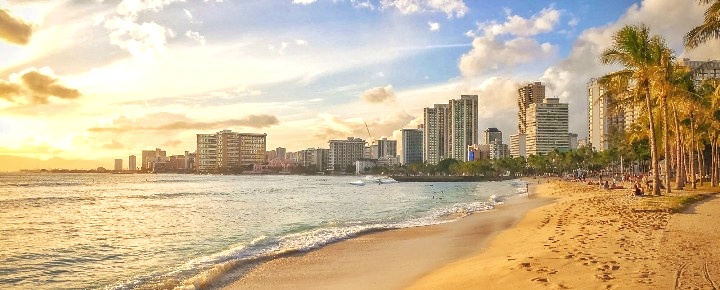
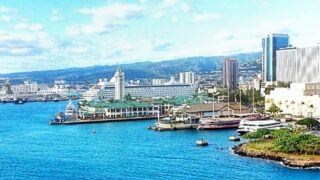
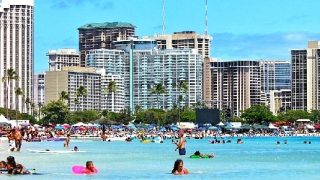
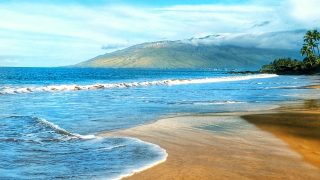

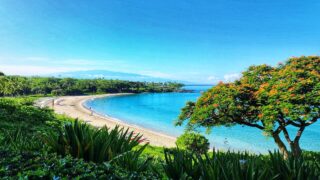

We currently own a rental condo and have seen these taxes and other charges keep going up dramatically in the past 4 years. The insurance rate adjustment and HOA increases are at an all time high and don’t seem to be slowing. If it were just the state tax, owners may adjust but that has just opened the flood gates for increases on every service.
The return on rentals has gone down while the overall rental goes costs go up. At some point it just isn’t worth keeping the investment. The airfare has increased by double, rental cars have increased by double, and food price at restaurant’s are unreal. Try to switch and buy groceries so you can eat more often in your condo and you find that 12.00 a dozen for eggs, 10.00 per gall of milk. Sweet bread is 11.00 and so that has become a no win trying to reduce food costs here. If the high cost increase continue We will end up dumping our condo and move the investment back to commercial properties on the main land.
Aloha Lance, although grocery prices are expensive in Maui, the only supermarket I found to be gauging out of control was the Napili Plaza Shopping Center. I will never forget the $18 cranberry juice “on sale” and haven’t been back since ….and of course, nobody who lives there will shop in resorts. I personally drive to Whole Foods in Kahului once a week and buy what is on sale. Regarding restaurants, we know where to go and what times to get discounts. Regarding increases in condo fees, I found that most owners who don’t live in them, don’t follow the budget or what management does with their money ….anyways, long term rentals are still in high demand on Maui and you get a tax break, so those might be a better investment in the long run …
We’re visiting Hawaii in 2025, on a cruise, but if the proposed tax increases are enacted, it will be our last visit to the islands.
Governor Green is correct, but only partially. There does not seem to be a bottom to demand for Hawaii, all things being equal. However, Governor Green did not foresee the massive impact on global tourism caused by Trump and the ensuing economic chaos. I work in tourism (not to Hawai’i). Airlines worldwide are slashing their capacity. Tourism forecasts are down worldwide.
This is a no brainer and I am glad to see the cruise ship taxes. I have and will always think and believe they are an eye sore to every port I have had to view while roaming about a beautiful island. WHen I look out at the beautiful sea, I despise seeing a great big ship docked and people roaming about the shops like it was their first candy bar. But I personally believe travelling is about the land, the beauty of the people, and all its history, ….no shops, not restaurants, …not green space disturbance and cluttered water ways…period. p.s. leave your darn pets and whiny unbehaved children at home too! Yes, I’m old, but I have always and always been raised to honor the beauty of this earth, not clutter it with fake crap.
I agree with you on most points, but at least small souvenir shops and restaurants would help locals. I don’t like cruises (because of the environmental impact), but ironically won a trip to the Bahamas and were greeted with music and dance …I was surprised that the gift shops were pretty empty, but we bought some souvenirs, sunglasses, rum cake and a beach bag. I have never taken a cruise to Hawaii, but liked the way Hawaiians were chanting “come again” in 1989. And why not having Auntie sell them some banana bread before they board the ship again? I am sorry that people are now so divided. I don’t like extremes. (PS: I live in Maui)
My trip booked for October is going to be my last, at least for the foreseeable future, every time I visit the accomodation tax and those on rental cars seem to increase. I’m taking my mone where I get better value and I’m appreciate. Sorry it has to be this way Hawaii, you have no one to blame, but yourself.
A one-day Disneyland ticket costs between $98 and $271, depending on the date and tier.
$20 per day for visiting a whole island seems like a great deal!
This really has no impact on me. We’re visiting Maui for the last time now. We’ve been priced out.
Agreed. We did Maui once a year for 10 years straight until the fires. We looked into going back recently, but the prices have gotten insane for everything. What used to be a 5k trip for 5 nights is now almost double. We are done with Hawaii for now. I expect that eventually they will price themselves out of the average family going and it will only be the elites.
All the taxes paid by both visitors and owners of vacation rentals are becoming obscenely high. And now I hear that the mayor of Maui will take home a salary higher than the governor’s. Does he deserve this as he was “missing in action” during the Lahaina wildfire disaster and has caused chaos in Maui’s tourism industry by proposing to eliminate 7,000 short term vacation rentals? What a mess.
“Sooner or later you run out of other people’s money”…
Margaret Thatcher
There are hundreds of beautiful places and islands to travel to throughout the world that will appreciate your travel dollars. The taxes and resort fees in Hawaii are ridiculous, and rising allnof the time. You could go to the Carribean for half the price of Hawaii.
My “ex” tried to convince me that there are other places like Hawaii (after I fell in love with Hawaii in 1989), so we went to Florida, Cancun, Acapulco, the US Virgin Islands, Puerto Rico, Costa Rica, Bermuda, Bahamas …I might miss a few, but it ended up with me buying a sign that said “You go your way, I’ll go to Maui” and I am very happy living here. That said, people have a choice and I am glad they do. Hawaii is not for everyone, especially not for those who compare Hawaii to those destinations. They are missing the point.
People have to have the will to boycott their Hawaiian vacations and let Governor Green choke on his, “They will still come”. We come as visitors that love the islands, not as open wallets to add to your frivolous spending habits.
Looks like the incompetents that run Hawaii are working overtime to catch up to Calif. No need to repeat in detail what has already been said. They have met their objective as we will never return.
The true spirit of Aloha is not a cash grab. Hawaii is beautiful and should be shared. My wife and I came here for our honeymoon, and are here again for our 10th wedding anniversary. We have visited Oahu, Kauai, and the Big Island thus far. Ironically we live in California, and it is safe to say that the same terrible government poisons your great state. As visitors we come in friendship and respect, as hosts you need to meet us in gratitude and grace. Mahalo.